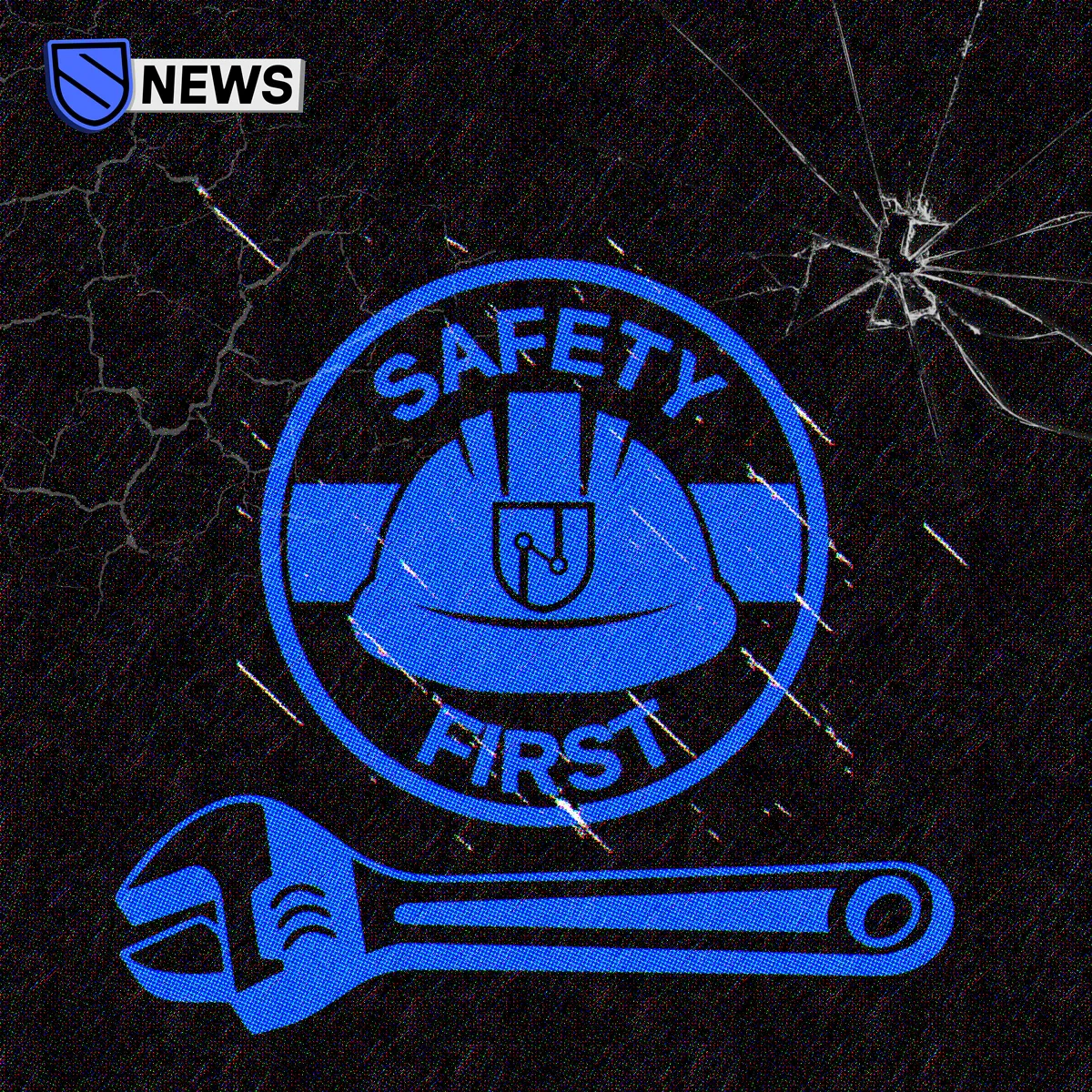In Wake of Mysterium Raids, Sentinel Calls for a Safer DePIN Industry
Over the past week, at least two German Mysterium exit node operators have come forward and informed their community that the police raided their homes. Those raids were in response to dVPN users accessing malicious content through their nodes.

Members of the Sentinel Foundation and Sentinel Growth DAO have posted statements and advice for community members in response to questions regarding a recent crisis at the Mysterium Network.
As most dVPN News readers will be aware, Mysterium is a separate project from Sentinel with its own native token and proprietary node network. However, their structural similarities with Sentinel created concern among this project's community this week when news broke that innocent "MystNode" hosts were becoming tangled up in a law enforcement operation.
🔎 What is Mysterium?
Mysterium is a long-established independent dVPN client which utilises its own layer on Ethereum rather than the Sentinel blockchain.
In contrast with many other competitors within the dVPN space, Mysterium is generally well-regarded by the Sentinel community, and the two projects have even worked together on efforts to educate the general public about dVPN in the past.
Raids in Germany
Over the past week, at least two German Mysterium exit node operators have come forward and informed their community that the police raided their homes. Those raids were in response to dVPN users accessing malicious content through their nodes, both of which were residential (as opposed to located at a data center).
CHILD PORN DISTRIBUTION VIA MYSTNODES CONFIRMED WHEN B2P VPN IS ENABLED
by u/Aggravating_Host5697 in MysteriumNetwork
Word of Warning
by u/Entire-Airline8777 in MysteriumNetwork
According to one of those aforementioned node hosts, there are now "several" cases related to illegal content accessed through MystNodes in the country, and "every MystNode runner in Germany since April 2024 could be affected." The user also attributed the incident to his enabling of a specific setting called "B2B VPN" on his node.
We cannot yet independently verify any of that individual's claims about what specific actions of theirs triggered the raid.
We have also not seen any reports of these police raids occuring outside of Germany, nor have we seen any reports of Sentinel Node hosts being targeted by them.
Sentinel Foundation Statement
By ProjectAutonomy
[Originally Published on Telegram]
[Malicious content affecting node providers] is an issue that has existed from the beginning of the peer-to-peer revolution: Where highly malicious content that is relayed in a peer-to-peer network—whether centralized or decentralized—affects the integrity of the infrastructure providers who are assumed to be the ones who have requested for this data, or who are uploading this data themselves to another server.
The fact is that the data is being encrypted between the server which is uploading the data to the end user. The dVPN server in the middle is providing the encrypted tunnel between both participants, which the dVPN server does not have any ability to access.
If there was an extremely detailed investigation [by law enforcement] into the network logs, it would be clear that the dVPN server itself did not not request or upload this data; and instead has just established an encrypted tunnel between the real uploader and downloader of the data.
This is a topic that requires attention and deserves a collaborative discussion between multiple dVPN related projects such as Nym, POKT and others.
- The most straightforward solution is for higher risk nodes such as residential nodes to restrict services to whitelisted IPs. For example, 100,000+ non-malicious whitelisted websites can be whitelisted for a user to connect to or access (such as Facebook or Instagram).
However, peer-to-peer functionality from the node may be restricted. Torrents [and] other file sharing structures could be disabled. - Maintaining detailed network logs at the node host level can be a solution as well, to prove that the data was encrypted by parties apart from the node host and that [the host] has no access to this data at all.
This is a retroactive solution and is reactionary. While preventative solutions are preferred, this is a potential option to safeguard node hosts as well.
[The Sentinel Foundation is] trying to reach out to the Mysterium team to understand more on this issue, and the goal is to strengthen the network and ensure that these incidents do not happen in the dVPN ecosystem ever.
Summary
- Infrastructure vulnerabilities and legal hazards for network contributors have been an issue with peer-to-peer networks for as long as they have existed.
- Any detailed criminal investigation of an incident such as the ones in Germany will reveal that the node served as an encrypted tunnel for the real perpetrator (meaning: node hosts will not ultimately be held criminally liable or charged).
- Sentinel views this as a topic which requires urgent attention, and wishes to engage with other DePIN/dVPN projects to find collaborative solutions.
DAO on Sentinel Node Security
Seventh, the founder of Sentinel's Growth DAO, also contributed information about how Sentinel Nodes protect the privacy of their customers and hosts alike.
In response to a community member's question about whether the operator of a Sentinel Node is able to monitor or log the traffic of dVPN users, Seventh stated the following:
"No, you can't see the traffic. The traffic is encrypted when it enters the network and is decrypted only by the end recipient."
"Depending on the routing protocol used, a node operator might be able to see the source IP," he continued, "[But] even if a node sees IP addresses, they cannot access the content of the traffic unless additional encryption methods (like HTTPS) are missing."
Examples of metadata that a Sentinel Node may in fact be able to collect or track which Seventh provided include:
- Volume of traffic.
- "Timing information, such as when traffic was transmitted."
- The size of data packets (however, this may only be possible on Wireguard nodes).
Advice for Node Hosts
If you you are located in Germany and are one of the many Sentinel Node hosts who also have operations on Mysterium:
• We highly recommend that you shut down any MystNodes you are running for the time being, regardless of whether they're residential or data center-based.
• Subreddit users have also suggested creating connection logs with data from April 2024 to the present day.
• If you are visited or contacted by law enforcement, inform them that you are running a dVPN node as quickly and clearly as you possibly can.
• In addition, we recommend that all MystNodes, whether located in Germany or not, disable the "B2B VPN" and "B2B Data Scraping" features.
When it comes to Sentinel Nodes, many project contributors and community members caution against hosting nodes on home internet connections, and usually urge prospective node hosts to use data center servers instead.
For more general detail about what Sentinel Nodes are and how they work, the Sentinel Documentation website maintains a comprehensive guide:

The dVPN Alliance also maintains a very helpful resource for protecting yourself as an exit node host in a distributed network.
Whether you host a node and you find yourself in a sticky situation, or if you just want to cover your bases and prevent issues from arising in the first place, this page should be somewhere in every dVPN network contributor's bookmarks.
Special thanks to Node Network contributor Syahpian Loi for bringing the Mysterium situation to the team and community's attention.
At dVPN News, every member of the Sentinel community is a contributor. Whether you're writing articles, sharing tutorials, or participating in discussions, your involvement is what drives our collective growth, and best of all it's rewarded! Together, so if you to contribute to the growth of the Sentinel Network, you are in the right place!
Connect With Us
Stay in touch and be part of our growing community:
• Follow Sentinel on X
• Follow the Growth DAO on X
• Join the Growth DAO community Telegram Group
• Join the official Sentinel Subreddit, r/dVPN







